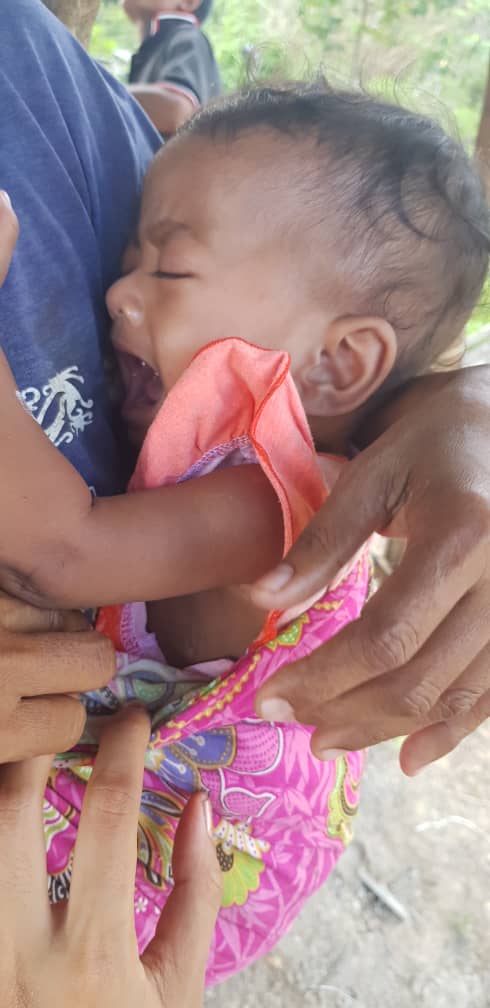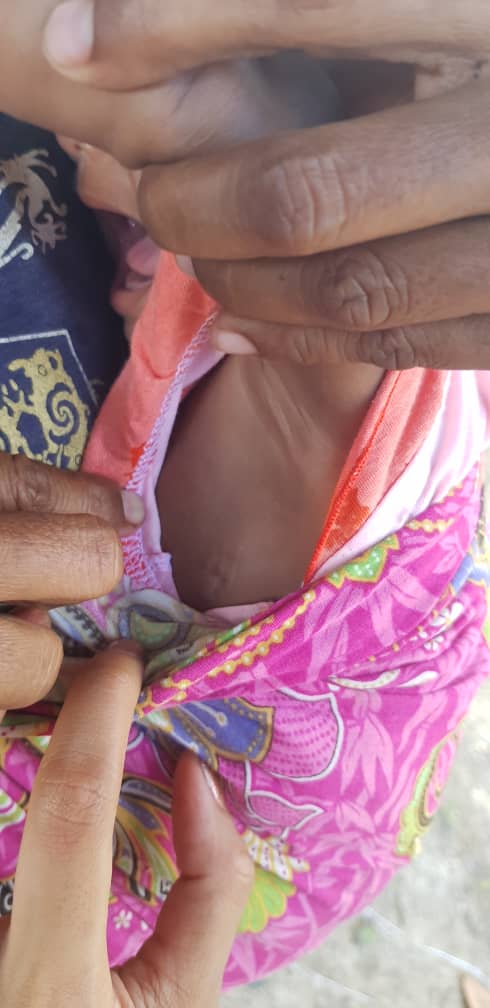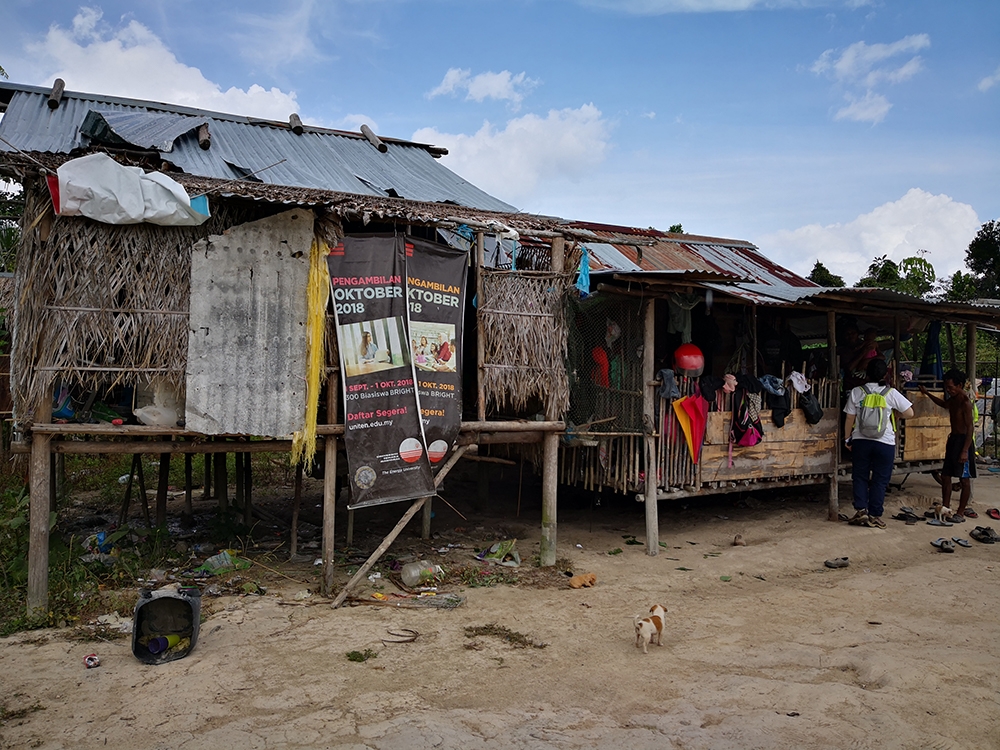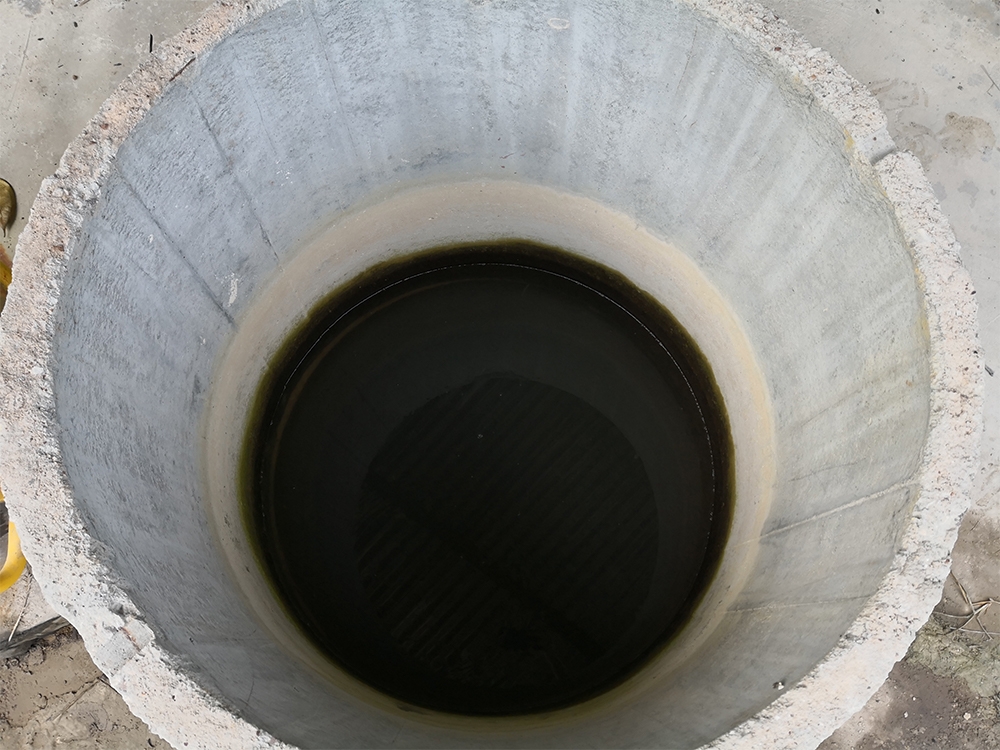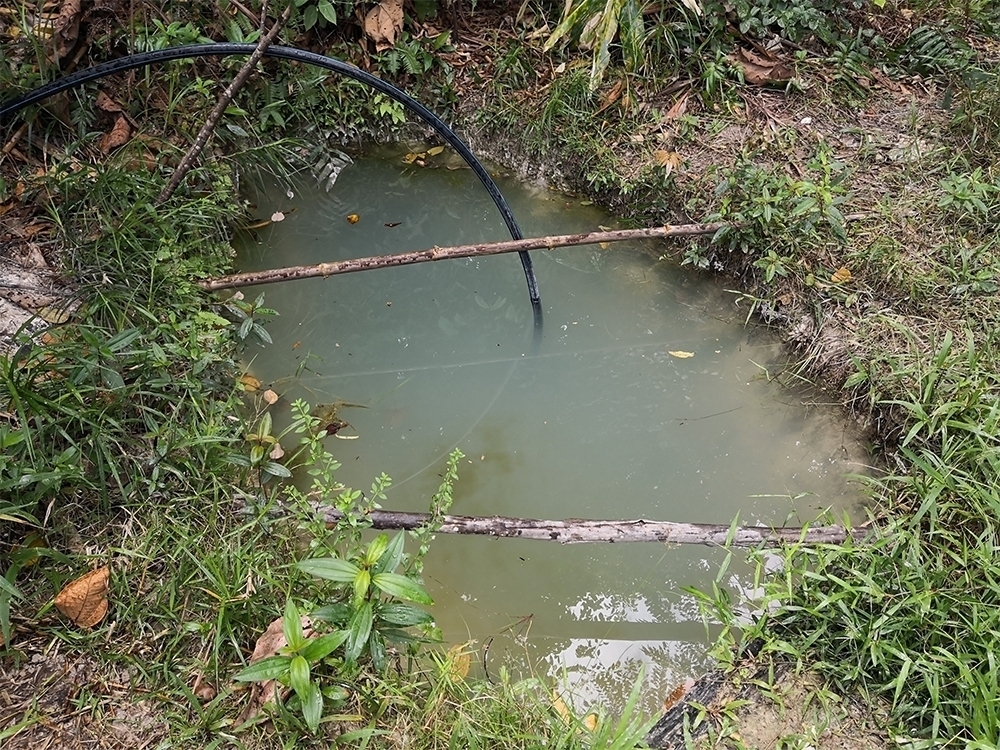10-month old baby with lung infection depends on bottled water for drinking and bathing because of contaminated village well water.
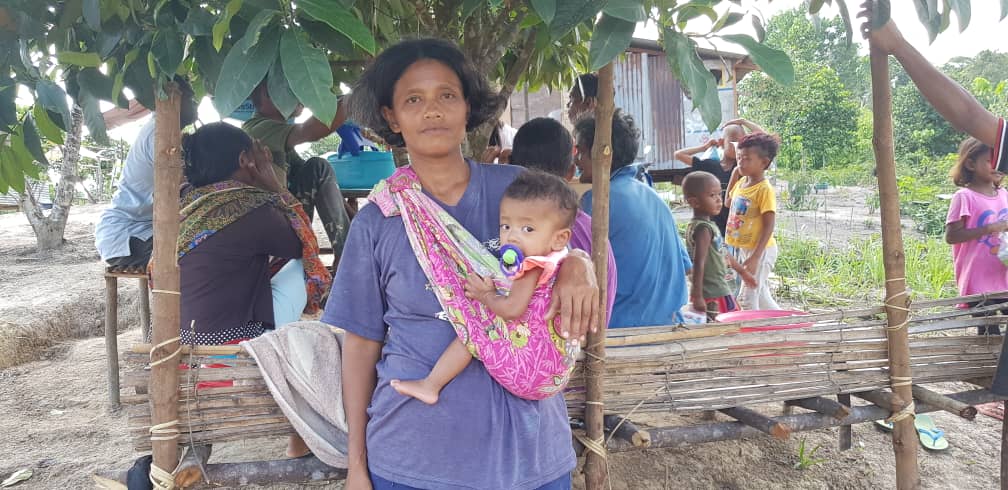
42-year old Rohana cradles her daughter, Puteri Rian, close to her. Puteri looks smaller than other 10-month olds, her skinny limbs sorely needing a healthy padding of baby fat. She has not learned to sit up or crawl yet, barely makes a sound unless it is to cry, and is lethargic most of the time.
“Around one month after we brought Puteri back to the hospital, she had a fever and cough,” Rohana tells us. “It became worse and we brought her to the hospital. She couldn’t breathe on her own and had to be on life support. The doctors gave her many injections with these big needles. She had to take medication and it made her cry every time.”
“Seeing my baby with tubes stuck to her body and relying on a machine to live was the most frightening moment of my life. I felt scared and helpless.”
Puteri was diagnosed with a lung infection and she had to have a procedure to remove the pus from her lungs. The doctor made an incision and extracted six bottles of pus. She was hospitalised in Hospital Tengku Ampuan Afzan in Kuantan, 120km away from her village, a journey that takes around one-and-a-half hours by car. Rohana stayed by her side the entire time. She was finally discharged five months later.
-

Scarring from the incision made to extract pus from Puteri’s lungs. -

“The doctor told me that my baby can only drink clean water or else she will fall sick again,” explains Rohana. “We have no choice but to buy bottled water to make her milk. I’m afraid to use the village well water so we buy extra and use that to bathe her too.”
Rohana lives in Kampung Petai, an Orang Asli village located 6km away from Muadzam Shah town. The laterite road to her secluded village is uneven and pock-marked with potholes, winding through rubber and oil palm plantations.
The village relies on a well and pond for water. However, the water appears cloudy and villagers complained that it smells and tastes bad. Rohana was not going to risk Puteri’s health by letting her drink this water.
-

Photo of Kampung Petai, taken on our first visit there. -

Well water used for drinking. -

Pond water used for drinking.
“The well water is contaminated and unclean. We go out a few times a day to buy water. It costs us around RM8 a day. My husband and the older children work as rubber tappers and foragers but we do not make much.”
Puteri has been hospitalised twice since birth. The second time, she spent three months in Hospital Segamat. The Department of Orang Asli Development (JAKOA) has been providing them financial aid for Puteri’s treatments but they still have to pay for travel expenses and clean water themselves.
Rohana says that she is upset to see her baby suffering. “She always looks sickly and doesn’t have energy. She doesn’t smile or laugh. She spent most of her life in hospitals. I don’t bring her out of the house often because she is weak and gets sick easily. She is slowly getting better with the treatments and I believe the bottled water helps. I don’t know how long it’ll take for her to completely recover and have a normal life.”
Every mother wants to do the best for her children. But what if she can’t because of circumstances way beyond her control? Rohana wants clean water for her baby so she can be healthy but she simply does not have that option.
This inequality in access to water is creating an ever-widening gap between urban society and the most marginalised communities, a gap that is leaving them further and further behind from the rest of the world. When will they be able to catch up?
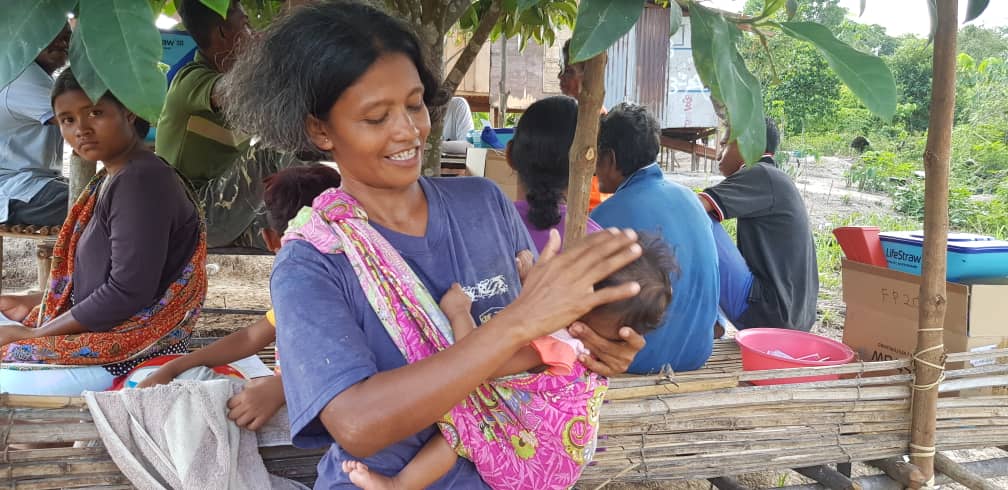
Written by
Yong Joy Anne, Storyteller
Interview by
Florentyna Shamsul Kamar

